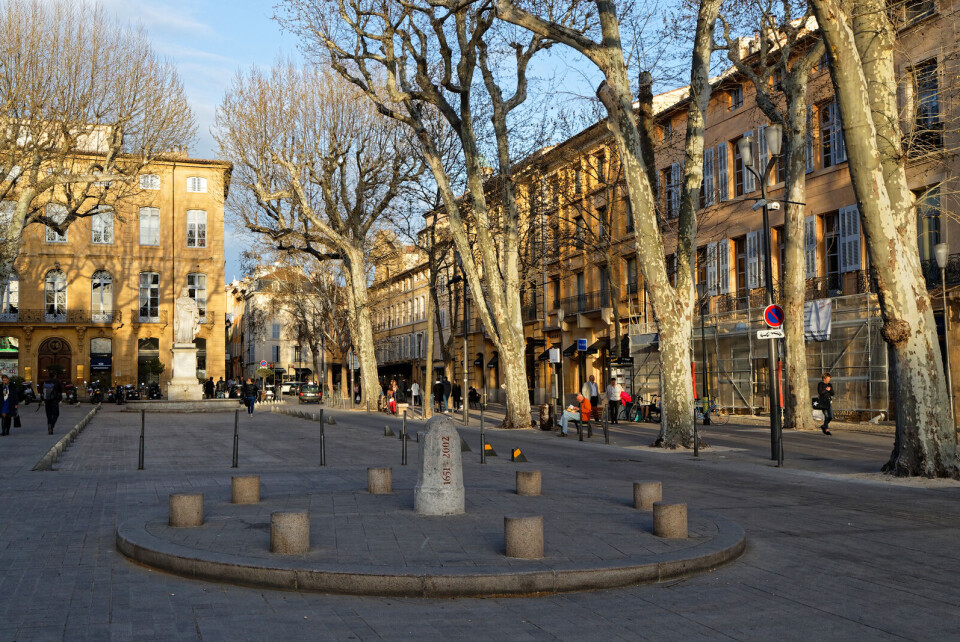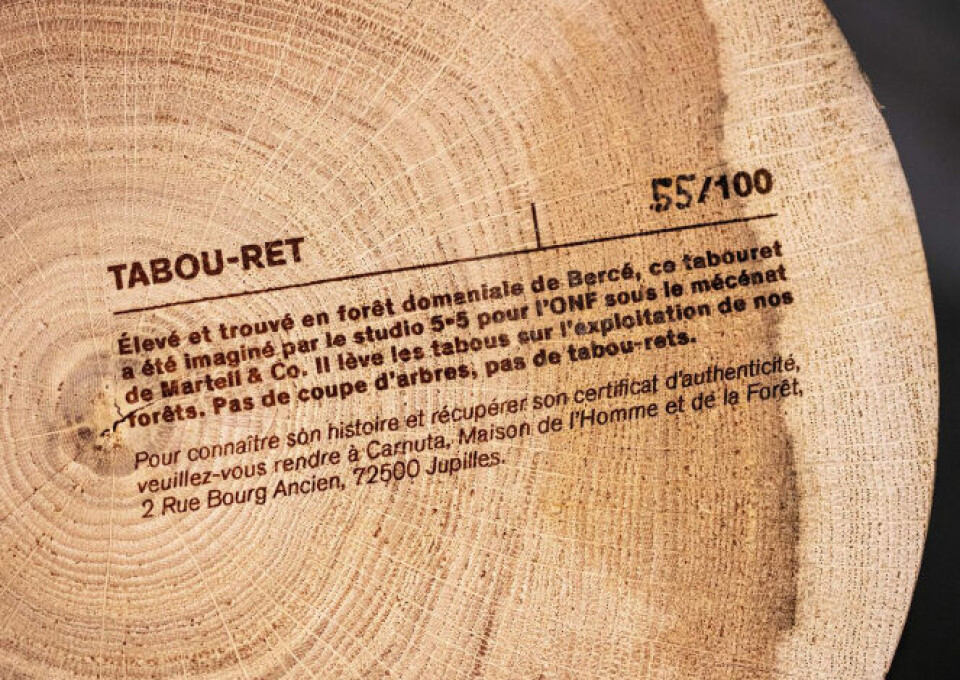-
Veggie burgers and plant-based sausages: French farmers and consumers react to name ruling delay
The EU failed to reach final agreement to draft rules governing plant-based naming
-
Hydroelectric conversions boost demand for historic French watermills
Laws on restoring rivers mean many are now threatened with removal
-
Millions of Perrier bottles blocked in south of France over bacteria concerns
Anomalies found at plant in Gard
Green news France: Pollution study plants city trees, Eco-hotels boom
Pollution study plants trees in Aix-en-Provence, eco-hotels see boom in France, publicity stunt in Loire to break tree-cutting taboo and more

Stool hunt to break tree-cutting taboo
In an unusual publicity stunt aimed at highlighting the need to cut down trees for forest management, a team from France’s National Forests Office (ONF, Office national des forêts) has hidden 100 stools carved from oak in a Sarthe (Pays de la Loire) forest.
The seating is free to anyone who finds one over the 1,500 hectare area.
The ONF wants to squash the taboo that tree cutting is wrongly equated with deforestation. The operation, called Tabou-rets. (tabouret is the French word for stool, and thus makes a wordplay with the word tabou – taboo).
“It’s normal to cut down trees” Nicolas Jannault, director of the ONF Pays de la Loire, told Francetvinfo. “We have a society that needs wood to cope with global warming. It is a renewable resource that allows us to store carbon” he says. The young shoots also need space to grow and flourish sustainably in a forest. Hence the need to make room for them by cutting down their elders.
The stools were designed by Studio 5.5, a Parisian global design collective, then cut in a sawmill in Loire-Atlantique using wood specially chosen from the Bercé forest. They are all unique, numbered pieces and come with a certificate of authenticity.

Trees planted as part of pollution study
Aix-en-Provence (Bouches-du-Rhône) is one of two European cities, alongside Florence in Italy, to be selected for a project called Airfresh which will see 400 trees planted on the boulevard du Général Paul Angenot – located in a suburb to the south west of the city.
The aim is to find out if the newly planted trees will have an impact on the city’s air quality. The project, led by Pierre Sicard, a scientist who specialises in pollution and climate change in forests, aims to reduce ozone by three tonnes per year.
The species selected include plane trees, lime trees, maples, oaks and Japanese sophoras – all adapted to local climatic conditions and an urban environment as well as being resistant to disease. They also absorb harmful volatile compounds while emitting few allergenic pollens.
Sensors installed 1m80 up the trees measure what pollutants humans breathe in (fine particles, CO2, ozone, and nitrogen dioxide) while others higher up the trees record meteorological data.
Eco-hotels boom
Combining ecological credentials, economic benefits for guests and stylish interior design, Eklo is a fast-growing chain of budget hotels that focuses on providing green stays in French cities. It includes youth hostel-style dormitories for groups or families.
The firm says its hotels use half the water and electricity (which is 100% ‘green’) of a conventional hotel, while its decor is trendy and simple, conceived with sustainability at the fore – via LED lighting, photovoltaic panels, recycling of cigarette butts and waste sorting.
Locations include Bordeaux, Clermont Ferrand, Le Mans, Lille or Marne-la-Vallée (Disneyland Paris), with Toulouse coming soon.
Watch your footprint’s footprint
While France and the European Union are considering labelling systems to denote the environmental footprint of clothing manufacturers and shoemakers, one French firm has seized the initiative.
Footwear firm Eram (based in Cholet, Maine-et-Loire) and subsidiary Bocage has devised an environmental calculator that measures the carbon footprint of its products. In 200 of its stores, labels on 80 shoe models will feature a QR Code that enables shoppers to see the place of production, the shoe’s composition.
The company aims to reduce its carbon footprint by 30% by 2030.
Related stories
Green news France: ‘Digital imprint’ bill not enough, SNCF no plastic
























